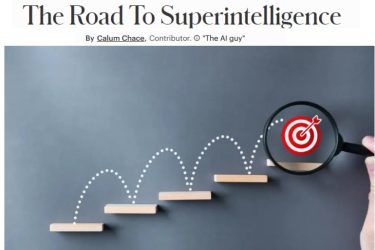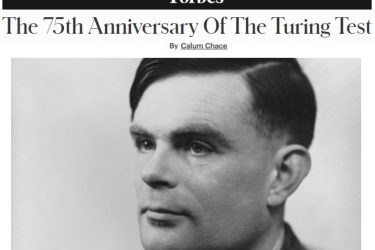In an article for the Technology Liberation Front, Adam Thierer of George Mason University becomes the latest academic to reassure us that AI and robots won’t steal our jobs. His article relies on three observations: First, Amazon is keen to automate its warehouses, but it is still hiring more humans. Second, ATMs didn’t destroy the jobs of human tellers. Third, automation has not caused widespread lasting unemployment in the past.

Unfortunately, the first of these claims is true but irrelevant, the second is almost certainly false, and the third is both irrelevant and false.
Amazon has automated much of what humans previously did in warehouses, which has undoubtedly reduced the number of humans per dollar of value added, but the penetration of retail by e-commerce is rising very fast, and Amazon is taking share from other retailers, so it is not surprising that it is still hiring. Amazon may never get to the legendary “dark” warehouse staffed only by a human and a dog (where the dog’s job is to keep the human away from the expensive-looking machines), but it will keep pushing as far in that direction as it can. One of the major hurdles is in picking, and that looks like falling fairly soon – in years not decades.

ATMs did destroy bank tellers’ jobs, but some of the peak years of their introduction to the US market coincided with a piece of financial deregulation, the Riegle-Neal Interstate Banking and Branching Efficiency Act of 1994, which removed many of the restrictions on opening bank branches across state lines. Most of the growth in the branch network occurred after this Act was passed in 1994, not before it. Teller numbers did not rise in the same way in other countries during the period. In the UK, for instance, retail bank employment just about held steady at around 350,000 between 1997 and 2013, despite significant growth in the country’s population, its wealth, and its demand for sophisticated financial services.
As for the third observation, automation certainly has caused widespread lasting unemployment in the past – of horses. Almost all the automation we have seen so far has been mechanisation, the replacement of human and animal muscle power by steam and then electric power. In 1900 around 25 million horses were working on American farms and now there are none. The lives of humans, by contrast, were only temporarily disrupted – albeit severely and painfully – by this mechanisation. The grandchildren of US farm labourers from 1900 now work in cities in offices, shops and factories.
The question is whether it is different this time round, because the new wave of automation – which has hardly begun as yet – is cognitive automation, not mechanisation. My book “The Economic Singularity” presents a carefully-argued case that it is.
Of course no-one knows for certain what will happen in the next few decades. Mr Thierer and others may be right, and the people (like me) that he excoriates as “automation alarmists” and “techno-pessimists” who “suffer from a lack of imagination” may be wrong. Time will tell.
But if we are right, and society fails to prepare for the massively disruptive impact of technological unemployment, the outcome could be grave. If we are wrong, and some modest effort is spent on analysing a problem that never occurs, almost nothing would be lost. The equation is not too hard to figure out.

Finally, I reject the claim that the people who take the prospect of technological unemployment seriously are necessarily pessimistic. It is optimistic, not pessimistic, to believe that our most plausible and most positive route through the economic singularity is to work out how to build or evolve the post-scarcity Star Trek economy, in which the goods and services that we all need for a flourishing life are virtually free. We should aim for a world in which machines do all the boring stuff and humans get on with the important things in life, like playing, exploring, learning, socialising, discovering, and having fun. I refuse to believe that being an Amazon warehouse worker or an actuary is the pinnacle of human fulfilment.
Surely it is those who do think that, and who insist that we all have to stay in jobs forever, who are the true pessimists.
https://techliberation.com/2017/07/26/shouldnt-the-robots-have-eaten-all-the-jobs-at-amazon-by-now/


